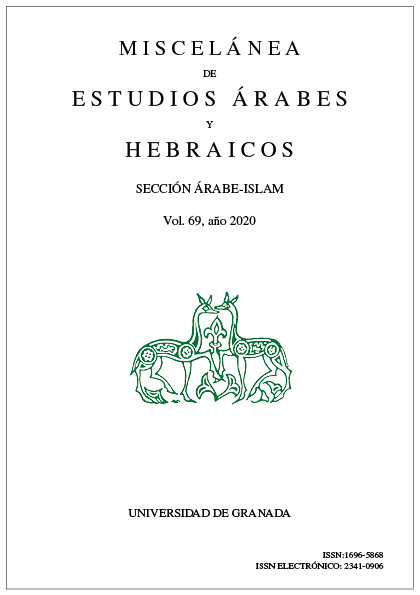The sources of the satire in Andalusian poetry of the eleventh century (fifteenth century H.)
DOI:
https://doi.org/10.30827/meaharabe.v69i0.1062Keywords:
Andalusian poetry, Satire. Humor, Islamic cultureAbstract
This article seeks to uncover the sources of comic and satirical images in Andalusi poetry during the eleventh century (fifteenth century of Hijrah) and to highlight the skill of Andalusi poets in expressing humour and irony in literature in innovative ways. The paper looks at the artistic traits of Andalusi satirical poetry in relation to five different perspectives: the Islamic spirit, the poetic legacy, personalities, Arab proverbs and nature in al-Andalus. Through these points, the paper shows the outstanding ability of Andalusi poets to create distinctive satirical poetry, as if this poetic genre were innate in the Andalu- si personality of the period. It also underlines the great ability of Andalusi poets to fuse satirical poetry with ancient texts of classical Arabic poetry, Quran verses or the legends of ancient prophets, in order to extract satire from texts that are originally quite the contrary.
Downloads
Downloads
Published
How to Cite
Issue
Section
License
The authors publishing their work in this journal agree to the following terms and conditions:
1. The authors retain the copyright and give the journal the right to be the first publication of the work and also to be licensee under a Creative Commons Attribution License which allows others to share the work, provided the author of the work and the initial publication in this journal are acknowledged.
2. Authors may make additional agreements separately for the non-exclusive distribution of the version of the work published in the journal (for example, putting it in an institutional repository or publishing it in a book), with acknowledgement of its initial publication in this journal.
3. Authors are allowed and encouraged to electronically disseminate (for example, in institutional repositories or on their own web page) the published version of their works (publisher's post-print version) or, if not possible, the author's reviewed and accepted post-print version. This is to facilitate productive exchanges, and allow for earlier and greater citation by third parties of the published works (See The Effect of Open Access).
4. The journal accepts no responsibility for the opinions expressed by the authors.



















